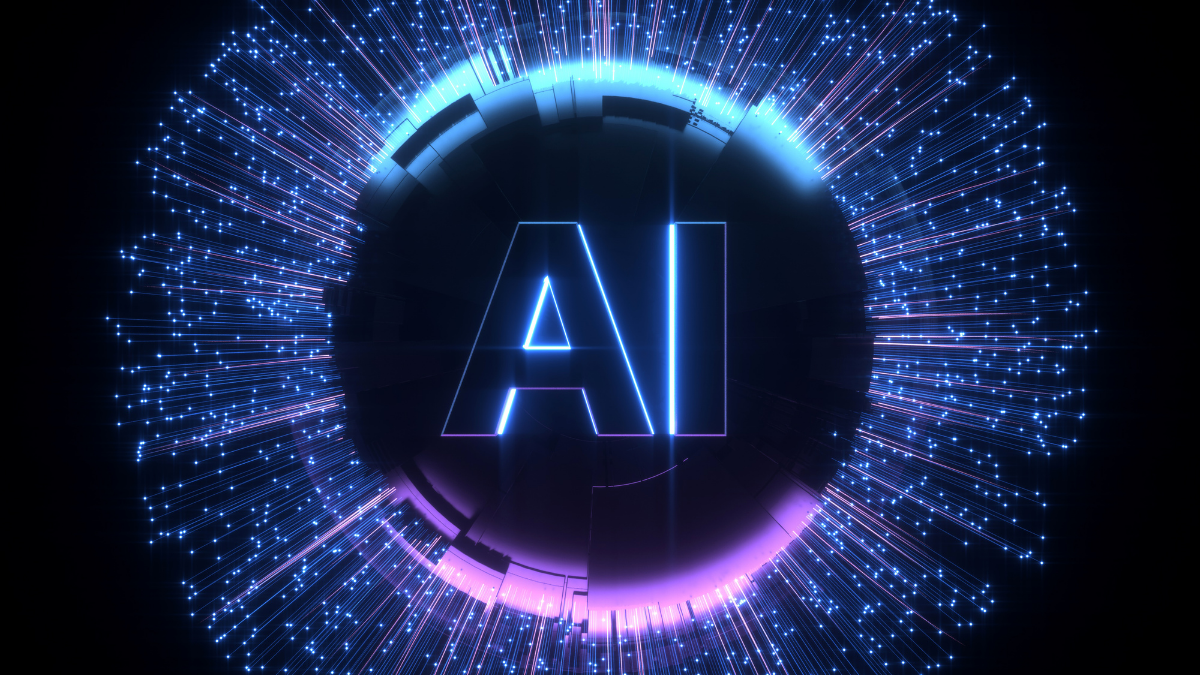Artificial intelligence (AI) has emerged as a transformative force in numerous sectors, and the healthcare industry is no exception. From diagnostics to patient care, AI is reshaping how healthcare is delivered, improving efficiency, reducing costs, and enhancing patient outcomes. In this article, we will explore the role of AI in healthcare, its applications, and the potential it holds for the future of medicine.
Understanding AI in Healthcare
AI in healthcare refers to the use of machine learning, natural language processing, and other AI technologies to automate, enhance, or streamline healthcare services. These technologies enable healthcare providers to analyse large datasets, improve decision-making, and deliver more personalised care to patients.
The healthcare sector is one of the most data-rich industries, and AI’s ability to process and analyse vast amounts of data quickly and accurately is one of the key reasons it holds so much promise. By leveraging AI in healthcare, professionals can detect patterns and make predictions that would be nearly impossible for humans to uncover on their own.
Key Applications of AI in Healthcare
- Medical Diagnostics One of the most impactful AI applications in healthcare is diagnostics. AI algorithms are being developed to assist doctors in diagnosing conditions such as cancer, heart disease, and neurological disorders more accurately and earlier than traditional methods. Machine learning models can analyse medical images, such as X-rays, MRIs, and CT scans, to detect abnormalities and recommend diagnoses.
For instance, AI-powered systems like IBM Watson Health have demonstrated their ability to assist doctors in diagnosing and treating cancer with high accuracy. These systems process data from medical literature, clinical trials, and patient records to help doctors make informed decisions. - Personalised Treatment Plans AI in healthcare is also improving the ability to tailor treatment plans to individual patients. By analysing data from patient records, including medical history, genetics, and lifestyle factors, AI systems can suggest the most effective treatments. This is particularly beneficial in oncology, where personalised treatment plans have been shown to increase survival rates.
- Healthcare Automation AI is automating many administrative tasks that once took up valuable time for healthcare professionals. Tasks like scheduling appointments, billing, and processing insurance claims are now more efficient through AI-based systems, reducing human error and administrative burden. This allows healthcare workers to focus on more critical patient care tasks.
- Remote Monitoring and Telemedicine With the rise of telemedicine, AI is playing an essential role in remote patient monitoring. AI algorithms can process data from wearable devices and sensors to track vital signs and alert healthcare providers if there are any abnormalities. This technology enables more proactive care, especially for patients with chronic conditions like diabetes or heart disease.
For example, AI-powered platforms can monitor patients in real time, predicting potential health issues before they escalate and reducing the need for emergency care. - Drug Development and Research AI has shown immense potential in accelerating the drug development process. By analysing vast datasets from clinical trials, medical literature, and patient outcomes, AI can identify promising drug candidates, predict how different molecules will interact, and speed up the discovery process.
In the case of the COVID-19 pandemic, AI was used to rapidly analyse existing drugs and predict which could be effective in treating the virus, significantly shortening the research timeline.
The Benefits of AI in Healthcare
- Improved Accuracy and Early Detection AI can process medical data at a speed and accuracy that humans cannot match. In fields like radiology and pathology, AI systems are able to detect issues that may be missed by the human eye, allowing for earlier intervention and improved patient outcomes.
- Increased Efficiency and Reduced Costs By automating administrative tasks, reducing human error, and optimising workflows, AI is making healthcare more efficient and cost-effective. This can help address some of the longstanding challenges in healthcare, such as physician burnout and administrative overhead, which contribute to rising healthcare costs.
- Enhanced Patient Experience AI can also improve the patient experience by offering more personalised care. By analysing patient data, AI can help healthcare providers understand individual needs and preferences, allowing them to deliver more tailored treatment options and communication. Additionally, AI-powered chatbots and virtual assistants can provide 24/7 support for patients, answering questions and scheduling appointments.
The Future of AI in Healthcare
The potential for AI in healthcare is immense, and we are only beginning to scratch the surface of its capabilities. As AI technologies continue to evolve, we can expect to see even more sophisticated applications across the healthcare industry. Some of the key areas for future growth include:
- AI-powered robotic surgeries: AI-enabled robots are being developed to assist in minimally invasive surgeries, providing enhanced precision and reducing recovery times.
- Predictive analytics for population health: AI can be used to predict trends in disease outbreaks, enabling healthcare providers and governments to take proactive measures.
- Expanded use of AI in mental health: AI can help diagnose mental health disorders by analysing speech patterns, social media activity, and other data points.
Challenges and Ethical Considerations
While AI holds great promise, its implementation in healthcare also comes with challenges. Data privacy and security concerns are paramount, as healthcare data is highly sensitive. Additionally, there are concerns about AI replacing jobs in healthcare, although many experts believe AI will augment rather than replace human workers.
Another challenge is the need for proper regulation and standards for AI in healthcare to ensure its safe and effective use. The development of transparent and ethical AI systems will be crucial in addressing these concerns.
Conclusion
AI in healthcare is no longer a futuristic concept—it’s here, and it’s revolutionising the way healthcare is delivered. From improving diagnostic accuracy to enhancing patient care and reducing costs, AI is transforming healthcare for the better. As technology continues to evolve, we can expect to see even more exciting developments in the healthcare sector. Embracing AI in healthcare will not only improve the quality of care but also make healthcare more accessible, efficient, and affordable for all.











